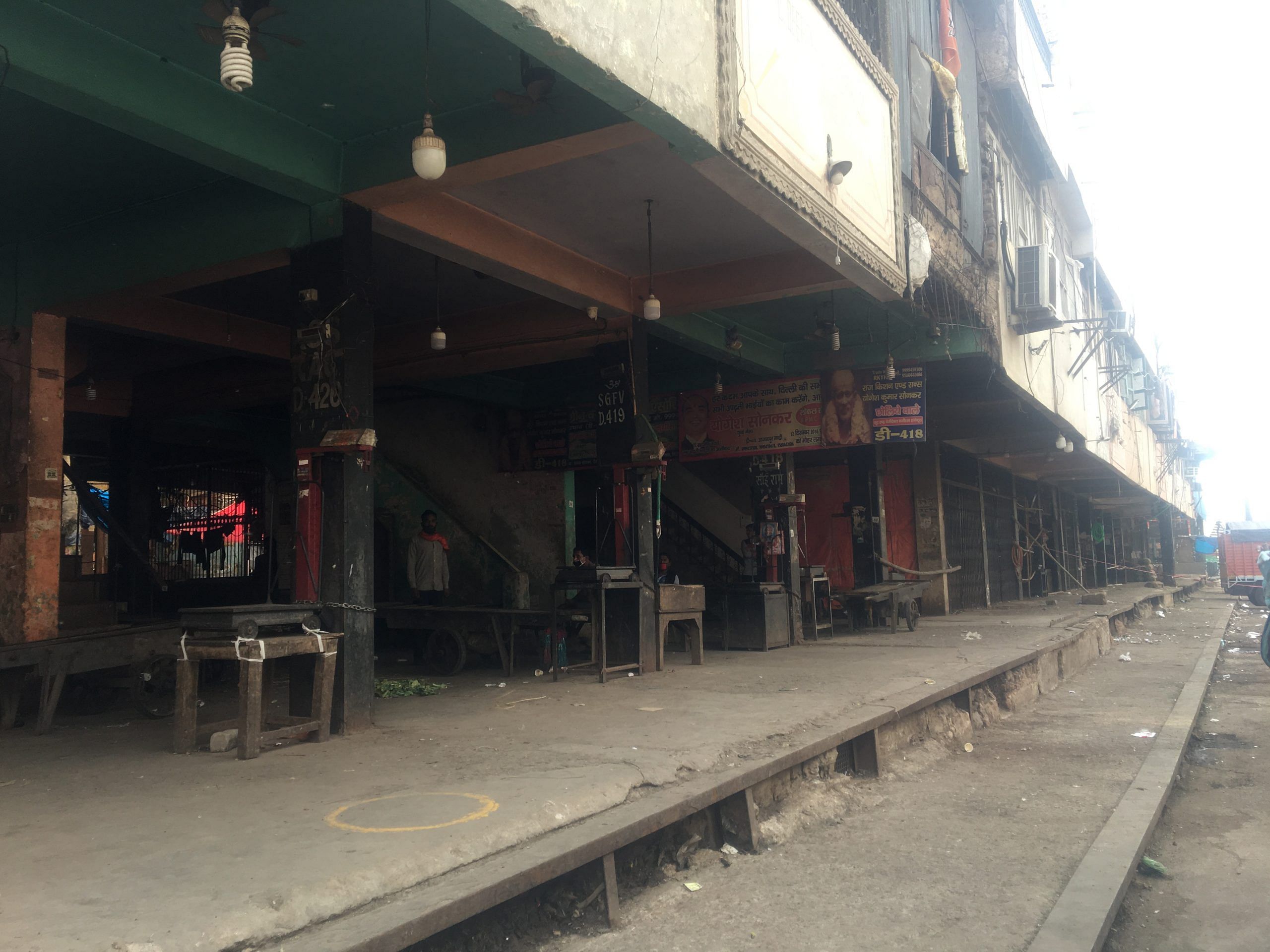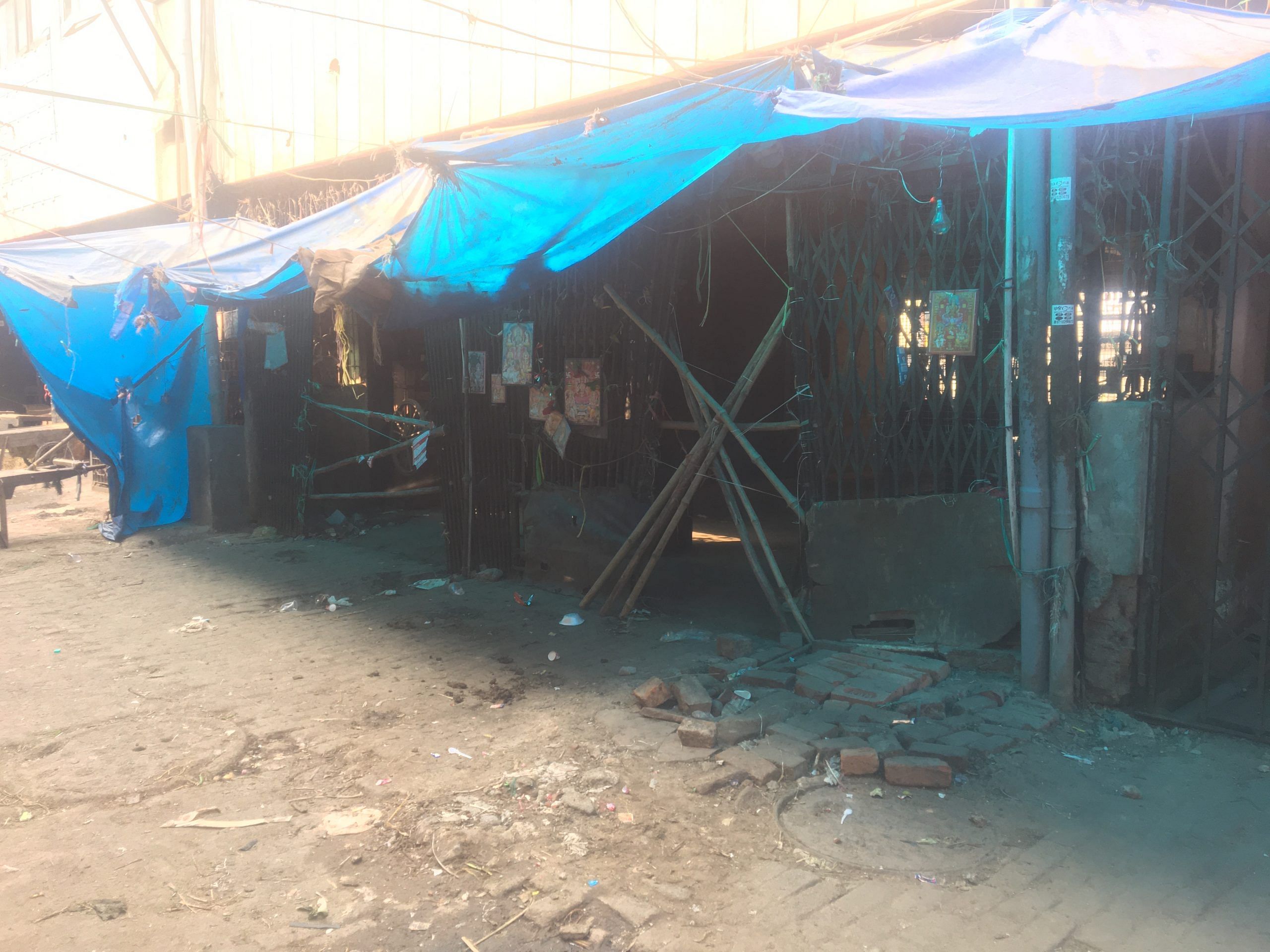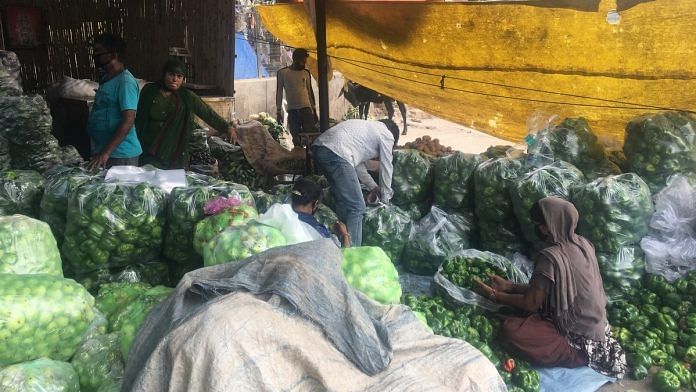New Delhi: Deserted entry lanes, rows of shops abandoned and shopkeepers sitting around with unsold fruits and vegetables in the few shops that are open — a bustling transit hub in the national capital till last month, Asia’s largest wholesale market Azadpur Mandi now resembles a ghost market in the middle of the afternoon.
On Wednesday, ThePrint met vendors and traders in the market who expressed fears of losing both lives and livelihoods amid an onslaught of factors, ranging from the spread of Covid-19 infection in the market to supply issues.
“I served at least 15,000 customers a day earlier. Now I barely get 200 people. Income too has been severely hit. I managed to earn about Rs 50,000 a month earlier, now some days I fear whether I will earn anything at all,” said Ganesh Sahni, a fruit seller.
“Customers would come in lakhs, just to get to my shop, trucks would line up for hours. Now barely a few hundred trucks come to my shop. I am surviving on my savings, income has almost dried up,” said Sachinanand Dwivedi, a vegetable seller.

Apart from the impact of the nationwide lockdown announced on 24 March, the market has come up against many issues over the last couple of weeks.
At least 15 people in the market have tested positive for Covid-19. A trader succumbed to the infection on 20 April in what was the first case from the market. After his death, his shop was sealed. With 14 other cases, all detected between 20 and 30 April, more and more shops are being sealed every day.
On 27 April, the Haryana government also sealed the Delhi-Sonipat and Delhi-Jhajjar borders, about 20 km away from the Azadpur Mandi. The movement of trucks is being allowed but numbers have drastically gone down.
Also read: Residents of Delhi containment zones to be screened thrice in 2 weeks, says Kejriwal govt
Supply hit, but no price rise, says APMC
Tanveer Ahmed, secretary, Agricultural Produce Marketing Committee (APMC), Azadpur, said supply of vegetables from Sonipat and Jhajjar have dropped by 15 per cent, adding that farmers around these areas are not being able to send their produce.
“Earlier 10,000 tonnes of goods would come in everyday to the Mandi. Now trucks bring an average of 6-6,500 tonnes everyday. Around 3,000 trucks come now against the 7,000 trucks earlier,” he said.
On Friday, ThePrint reported that prices of vegetable items could double as supply to Azadpur Mandi has halved over the last two days.
However, Ahmed said, “Demand has been severely hit due to closure of restaurants and hotels. Ginger, garlic, onions have been particularly hit since not many are cooking non-vegetarian (food) these days. Prices though have not been affected.”
Vendors and traders from across the country send their trucks to the transit hub to sell their goods and return with trucks full of purchases. Farmers from around the region also send their produce to traders at Azadpur Mandi, who charge 6 per cent commission to sell the goods at their shops.
“Traders at the Mandi are dealing with a loss of commission with trucks not coming from other states,” said Ahmed.
“But there’s no disruption of supply to Delhi. Trucks that would normally come in from other states are now selling their wares in local shops. We are working with the government to ensure prices don’t rise,” he said.
Also read: Delhi, Mumbai, Chennai, Kolkata still in Red Zone, will remain under lockdown after 3 May
Fears in the market
While the consumer may not feel the pinch yet, traders and vendors at Azadpur Mandi are facing a double salvo due to the lockdown and Covid-19.
After the infection spread in the market, entry of trucks and crowds are being monitored, and shops are being sealed.

“Each lane has about 30 shops. At least five shops have been sealed in every lane, across all 4 blocks here,” said Ravi, a vegetable seller.
“We are very scared. There are so many trucks, so many people coming in everyday. Who’s coming from where and carrying what disease or symptoms we have no way of knowing,” said a vegetable seller who didn’t wish to be named.
Deepak Shinde, North Delhi District Magistrate, under whose jurisdiction the market falls, said, “We are making announcements on social distancing. Those violating norms are getting an FIR or a ban from the Mandi. We have already banned 60 people.”
Inside the market too, strict social distancing norms have been enforced.
“Vehicles are first being asked to stand by at nearby Nirankari Ground. We are then allowing entry of 100-200 trucks in batches on the basis of a token system. Larger trucks get six hours and smaller trucks four hours inside the market,” said Neeraj Kumar Singh, a Delhi Police official who didn’t disclose his rank.
With footfall running into lakhs before the lockdown, Azadpur Mandi now sees only 30,000 people, mostly in the early morning peak hours, according to Ahmed. This reduced footfall still remains a challenge for authorities’ contact tracing exercise.
For the vendors, though, the threat is more direct.
“Our produce is rotting in the fields. They are not allowing empty trucks in. Only those who have valid passes can come in. We try to sell as much as possible in the early hours of the morning but there’s so much still left,” Naeem, a vegetable seller said, pointing to the mounds and heaps of capsicum lying ready in bags in his shop.
Also read: When Delhi Metro reopens, these are the guidelines CISF wants followed by commuters, staff



